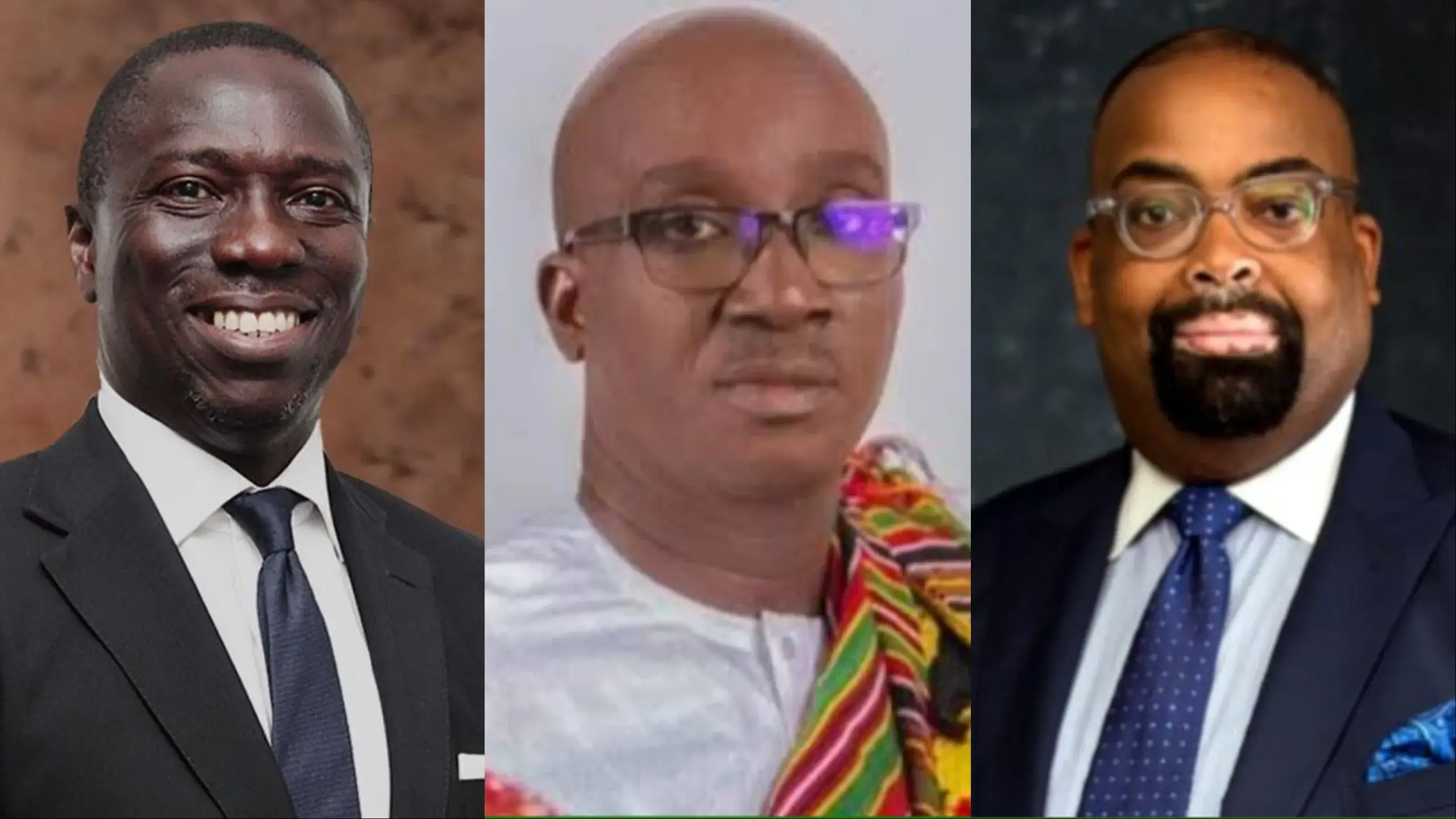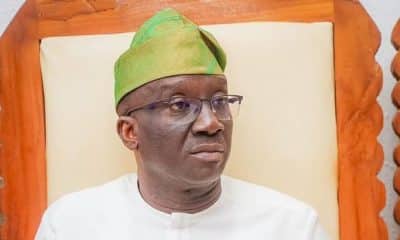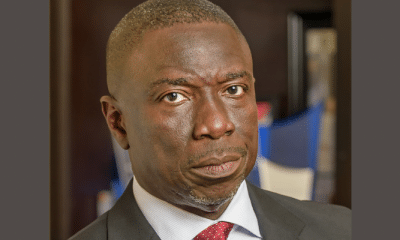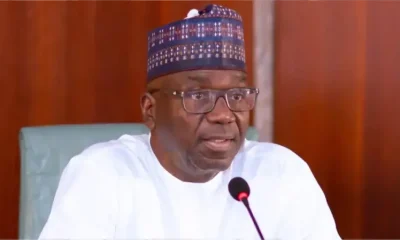Politics
Tribunal Fixes Date To Rule On Edo Gubernatorial Election

The Edo State Governorship Election Petition Tribunal has fixed Wednesday, the 2nd of April, 2025, for Judgment, Naija News reports.
The Independent National Electoral Commission (INEC) had declared Monday Okpebholo of the All Progressives Congress (APC) has the winner of the election held last year.
Okpebholo defeated Asue Ighodalo of the Peoples Democratic Party (PDP) and Olumide Akpata of the Labour Party (LP).
Recall that the Edo State Governorship Election Petition Tribunal had reserved judgment in the petition filed by the PDP and its candidate, Asue Ighodalo, challenging the declaration of Okpebholo as winner of the September 21, 2024 governorship election.
The PDP and Ighodalo are disputing the results announced by the Independent National Electoral Commission (INEC), alleging electoral irregularities, including over-voting, ballot non-serialization, incorrect collation, and computation errors.
During the course of the tribunal hearings, the petitioners called 19 witnesses and subpoenaed a Senior Technical Officer from INEC’s ICT department, who presented 154 BVAS machines to support claims of over-voting.
INEC, Okpebholo, and the APC are the first to third respondents respectively in the case marked EPT/ED/GOV/02/2024.
INEC did not call any witnesses to counter the petitioners’ claims. Okpebholo presented one witness, while the APC called four before closing their defense.
The three-member panel led by Justice Wilfred Kpochi announced that judgment would be delivered at a later date to be communicated to all parties.
“A date for judgment will be communicated to the parties by the Secretary of the tribunal. The tribunal stands adjourned until then,” said Justice Kpochi.
Earlier, the petitioners’ lead counsel, Adetunji Oyeyipo (SAN), formally adopted their final written address. INEC’s counsel, Kanu Agabi (SAN), urged the tribunal to dismiss the case, describing it as lacking in merit.
Agabi argued that all polling unit agents who testified had signed the result sheets and “could not distinguish between what they heard and what they observed.” He added that the number of polling units covered by the petitioners was too small to warrant nullification of the entire election.
“The petitioners have not pleaded any alternative results on the basis of which they can be declared winners. Their case is based on analyses carried out by hired consultants,” Agabi stated, describing their claims of non-compliance as weak and unsupported by credible evidence.
On behalf of the governor, Onyechi Ikpeazu (SAN) said the APC candidate emerged victorious through valid votes. He challenged the petitioners’ position on the non-serialization of sensitive materials, clarifying that Form EC25B only requires the quantity of materials received and returned—not their serial numbers.
He added that while the petitioners alleged over-voting, none of the BVAS machines brought before the tribunal were actually opened for verification. “They failed to present the necessary documents to substantiate their claims,” Ikpeazu argued, calling the petition an “academic exercise.”
Also adopting its final address, APC’s counsel, Emmanuel Ukala, stated that the petitioners failed to provide enough witnesses to support their claims. He pointed out that only five polling unit agents were called out of over 4,000 polling units in the state, with no presiding officers summoned to testify.
He stressed the Supreme Court’s standard that allegations of non-compliance must be proven polling unit by polling unit, ward by ward, and local government by local government. “The petitioners did not show how the BVAS machines functioned, nor did they call enough witnesses,” Ukala added.
Responding, the petitioners’ counsel, Ken Morzi (SAN), clarified that their complaints were limited to 765 polling units, not the entire state. He argued that the case should be assessed holistically and not based solely on the percentage of polling units challenged.
Morzi said, “We concede that elections took place at the polling units, but our contention is how 25 votes transformed into 525 votes at the collation centres.”
He also addressed allegations of document dumping, asserting that all submitted documents were certified by INEC and tendered without objection. On the issue of alternative results, Morzi said all evidence before the tribunal was provided by the petitioners.












